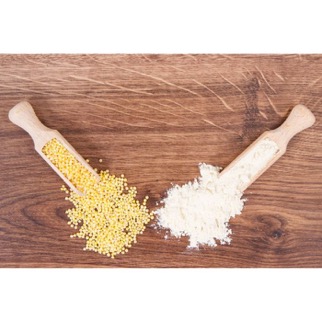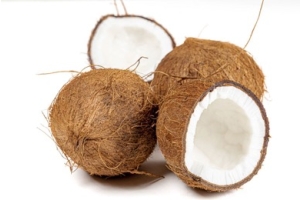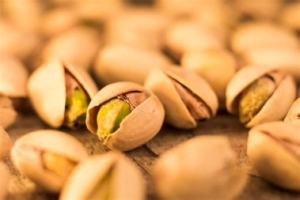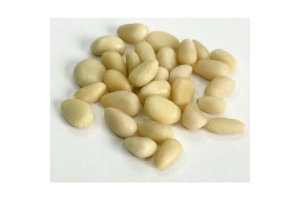Millet Flour Health Benefits-A Nutrient-Packed Alternative

Millet Flour Health Benefits-A Nutrient-Packed Alternative
Millet flour has been gaining popularity as a healthier alternative to highly processed flours. In this article, we'll explore the remarkable health benefits of millet flour and why it's becoming a favorite choice for health-conscious individuals.
The Rise of Millet Flour
In recent years, people have become more health-conscious, seeking nutritious alternatives to highly processed flours. Millet flour has emerged as a versatile and wholesome option, packed with numerous health benefits.
Gluten-Free Goodness
Millet flour is a gluten-free powerhouse. For individuals with celiac disease or gluten sensitivity, this grain is a game-changer. It allows you to enjoy bread, muffins, and other baked goods without the discomfort associated with gluten consumption.
Beyond the relief it offers to those with gluten-related issues, its gluten-free nature broadens its appeal. It's a valuable choice for anyone looking to reduce gluten intake and explore other grains. The versatile millet flour can be easily incorporated into various recipes, offering a mild, slightly nutty flavor.
Nutrient-Rich Profile
When it comes to nutrition, millet flour stands out. It's a great source of essential nutrients, including magnesium, iron, and B vitamins. These nutrients play a crucial role in maintaining overall health and well-being.
Magnesium, in particular, is vital for various bodily functions, such as muscle and nerve function, blood glucose control, and blood pressure regulation. Iron is essential for transporting oxygen throughout the body, ensuring energy levels remain steady. B vitamins, including B6 and niacin, support metabolism and overall well-being.
Improved Digestion
Millet flour is high in dietary fiber, which promotes healthy digestion. It aids in regular bowel movements, preventing issues like constipation. The fiber content also supports a feeling of fullness, making it a great addition to weight management diets.
The abundant dietary fiber in millet flour enhances the digestive process by softening stool and making it easier to pass, reducing the risk of constipation. Additionally, it can aid in reducing the risk of developing diverticulosis, a condition where small, bulging pouches form in the digestive tract.
Blood Sugar Management
For those looking to manage their blood sugar levels, millet flour is a valuable ally. It has a lower glycemic index compared to some other flours, which means it can help stabilize blood sugar levels and reduce the risk of sudden spikes and crashes.
With its lower glycemic index, millet flour provides a slower, steadier release of glucose into the bloodstream. This is particularly beneficial for individuals with diabetes or those at risk of developing the condition. By choosing millet flour over high-GI flours, you can help maintain better control over blood sugar levels.
Heart-Healthy Choice
Millet flour's nutrient composition contributes to heart health. It's low in saturated fats and contains beneficial fats like monounsaturated and polyunsaturated fats. Additionally, it's rich in potassium, a mineral linked to lower blood pressure.
Millet flour's heart-healthy profile is a result of its low saturated fat content and an ideal balance of beneficial fats. These fats play a significant role in reducing the risk of heart disease and promoting cardiovascular well-being. Furthermore, the presence of potassium aids in blood pressure regulation, potentially reducing the risk of hypertension.
How to Incorporate Millet Flour into Your Diet
Now that you're aware of the numerous health benefits of millet flour, you might be wondering how to use it in your everyday cooking. Millet flour can be used in various recipes, including pancakes, muffins, and even as a thickening agent in soups and stews. Experiment with this nutritious flour to enjoy its advantages.
Incorporating millet flour into your diet is easy. It can be used in baking to make gluten-free bread, muffins, or pancakes. Additionally, it's a great choice as a thickening agent for soups, stews, and gravies, adding a unique flavor and texture to your dishes. The versatility of millet flour makes it a valuable addition to your kitchen.
Conclusion
Millet flour has gained recognition for its exceptional health benefits, particularly when compared to highly processed flours. It's gluten-free, nutrient-dense, and can help with digestion, blood sugar management, and heart health. By incorporating millet flour into your diet, you can make a positive impact on your overall well-being.




 Over 500 health and wellness products
Over 500 health and wellness products Everyday savings and weekly promotions
Everyday savings and weekly promotions The best natural and organic produce from around the world
The best natural and organic produce from around the world Committed to you - over 10 years of trusted service
Committed to you - over 10 years of trusted service



